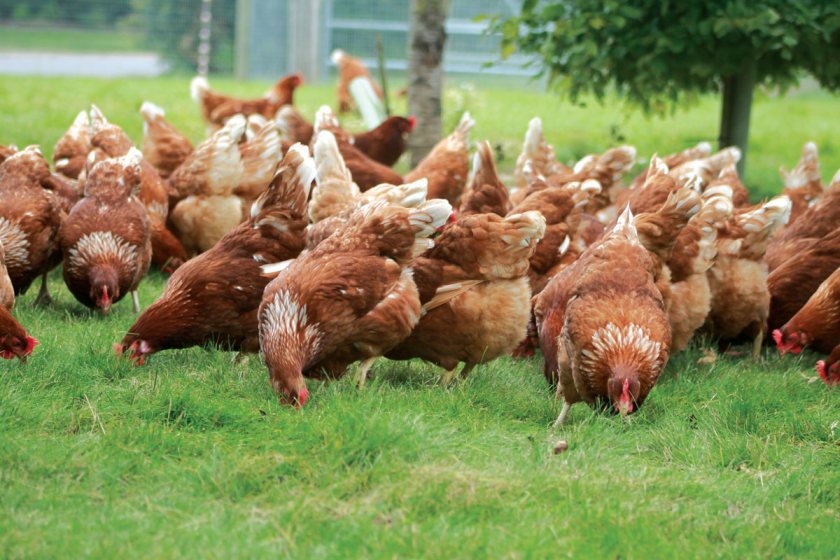Poultry housing order across England to be lifted

The mandatory housing order for poultry and captive birds across England will be gradually lifted starting from this week, the government has said.
The measure, in place to curb the spread of avian influenza, will be lifted over a seven-day period starting on Thursday 15 May and ending on 22 May.
After this period, the housing order will be fully lifted and all free range flocks must have access to the range area, Defra said on Monday (12 May).
The aim of the seven-day period is to allow farmers the flexibility to decide when it works best for their flock.
The avian influenza prevention zone (AIPZ) mandating strict biosecurity will remain in place in England, Scotland and Wales, while bird gatherings will also remain banned.
UK Chief Veterinary Officer, Dr Christine Middlemiss, said: "Following a sustained period of reduced risk from avian influenza, we are now able to lift the mandatory housing measures in effect in various counties.
“It is imperative that keepers continue to practice stringent biosecurity and that any suspicions of disease are reported to the Animal and Plant Health agency immediately."
The British Free Range Egg Producers Association (BFREPA) welcomed the government's announcement.
"Defra have responded to industry's concerns and has phased in giving birds access to the range over a seven-day period," the body said.
"This allows producers time to acclimatise their birds - some of whom have been housed since December 2024.
"We welcome Defra's flexible approach to lifting the housing order as it gives producers control over when it works best for their birds, taking into account their health and welfare, provided they have access to the range by 22 May and thereafter."
BFREPA also reminded farmers and bird keepers that the risk of avian influenza had not gone away.
The current risk level, whilst reduced, is still at 'medium' for sub-optimal biosecurity and 'low' with good biosecurity.
"The requirement to practice enhanced biosecurity still remains in force as part of the AIPZ," the body added.
This year's housing order is the first where egg producers were not subject to the '16-week derogation period' for free-range egg marketing, which is the maximum duration that eggs could be labelled as free-range while the hens are housed.
After 16 weeks of housing, eggs from those hens were labelled and sold as 'barn eggs'. However, recent consultations and amendments to legislation in England, Wales and Scotland have removed this 16-week limit.
This means that birds can now remain housed under a housing order and retain their free-range status until that order is lifted.
This change, made earlier this year, has been crucial for the free range sector as, for example, some flocks in East Anglia have been housed since 23 December 2024.
During the 2024-2025 housing order, approximately 2.1m laying hens and pullets have been humanely culled in an attempt to control bird flu, with the largest cull being in barn layers' in Wem, Shropshire.
The UK has had five mandatory poultry housing orders since November 2014.








